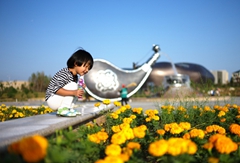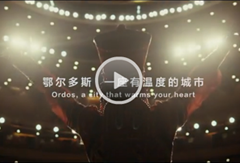Changes in clothing in 40 years since reform and opening-up
Updated: 2018-10-25  Print
Print 



A photo shows the clothing style of people in Inner Mongolia autonomous region in the 1970s. At that time, people's clothes were very simple in style, fabric and color although people's living standards had gradually improved since the establishment of Inner Mongolia autonomous region in 1947. Almost all the clothing was green, blue, black or gray. [Photo/saibeinews.com]

A photo shows clothing coupons, also known as bupiao, a product of China's planned economy from decades ago. Due to the tension between supply and demand, people had to use clothing coupons to buy cotton, boots, long underwear and even the threads that they used for sewing. A piece of clothing could be worn for years with regular sewing repairs. [Photo/ saibeinews.com]

Since reform and opening-up, supplies of commodities have become more abundant and the purchasing power of people has gradually increased. Domestic and foreign clothing brands have come into the market. The fabrics, colors and designs of clothing are much more diverse now. [Photo/ saibeinews.com]

A photo shows a custom tailor shop in Inner Mongolia autonomous region. The clothes buying habits of the region's residents has become more updated and diverse. Nowadays, residents can order clothes for themselves in accordance with their needs. In 2016, the per capita clothing expenditure of urban residents in the urban area was 2,543 yuan ($367), an increase of 2,424 yuan over 1985. The per capita clothing expenditure of farmers and herdsmen was 814 yuan, an increase of 784 yuan over 1985. [Photo/ saibeinews.com]

People in traditional ethnic Mongolian clothes are pictured in the region. Clothing in the new era does not simply incorporate modern elements but also contains traditional elements and ethnic characteristics. [Photo/ saibeinews.com]





 Ordos Impression
Ordos Impression Ordos WeChat
Ordos WeChat Ordos Reported
Ordos Reported


